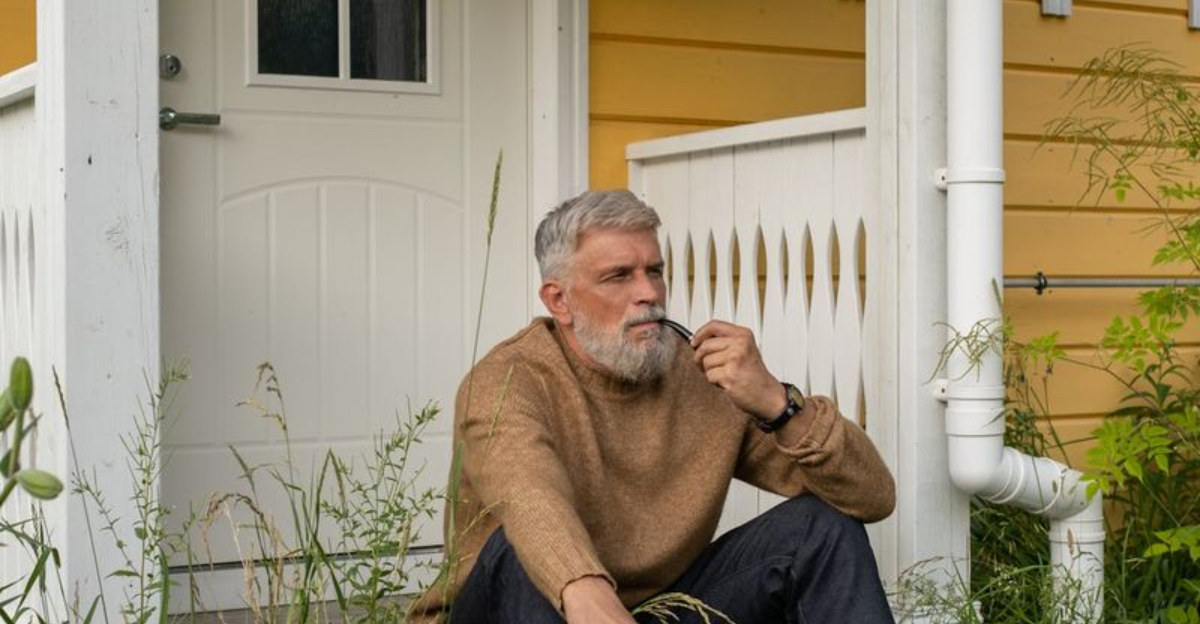18 Reasons Older People Stop Wanting To Talk To Anyone
As people age, they may find themselves withdrawing from social interactions for a variety of reasons. This withdrawal is often misunderstood as aloofness or disinterest, but the reality is far more empathetic.
From feeling misunderstood to valuing solitude, older adults often choose silence for deeply personal and reflective reasons. This article explores 18 thoughtful reasons why older people might stop wanting to engage in conversations, aiming to foster understanding and compassion towards their choices.
1. They’re Tired of Repeating Themselves

The feeling of being on an infinite loop, where stories and advice fall on ears that aren’t truly listening. Many older adults find themselves in repetitive conversations, recounting tales and wisdom that others have heard before but seem to forget. The frustration comes not from the act of repeating, but from the lack of sincere interest from the audience.
Imagine sharing a cherished memory, only to see blank stares in return. Over time, this can lead to a sense of futility. Why share at all if no one truly cares to listen? This desire for genuine conversation is what makes many older adults retreat into their own world, finding solace in silence rather than repetition.
2. They Feel Their Wisdom Is Dismissed
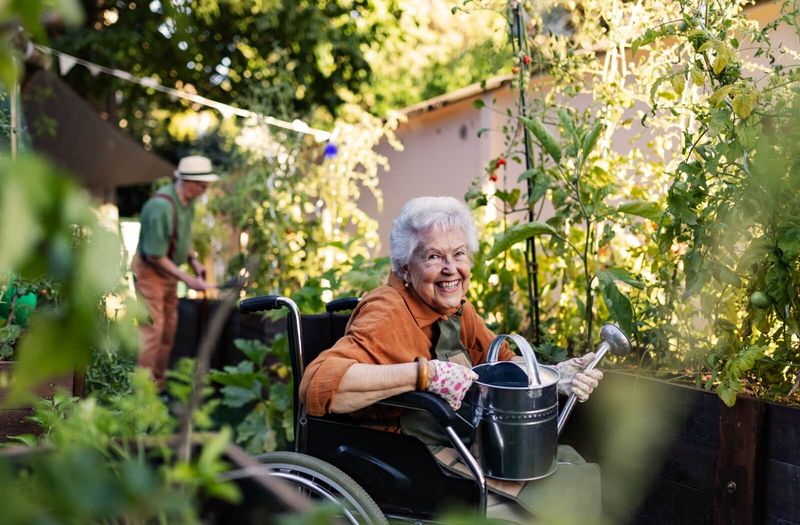
In a world that glorifies youth and novelty, the wisdom and experiences of older generations often go unnoticed. Despite offering insights shaped through years of lived experience, they find their voices overshadowed by newer, trendier perspectives. This dismissal is not just a blow to their ego but a profound sense of devaluation.
When older adults find their advice brushed aside, it can lead to a natural withdrawal. Why share the lessons of a lifetime when they are met with indifference? The garden, a place of quiet growth, becomes a metaphor for their inner world, where their thoughts can flourish without interruption. Silence becomes a shield against the superficial chatter that overlooks their worth.
3. They’re Drained by Superficial Conversation
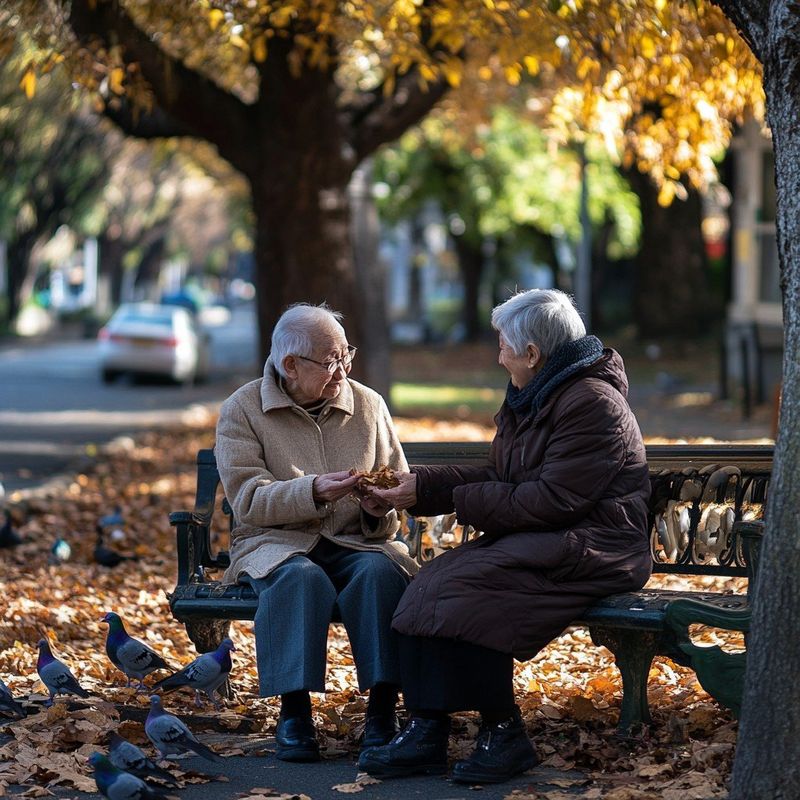
Casual chatter can be exhausting when it lacks depth and meaning, especially for those who have experienced the richness of life. Older individuals often find themselves yearning for conversations that explore deeper subjects, such as life’s meaning, love, and legacy.
Small talk about weather or current trends feels trivial compared to the significant topics they wish to discuss. This longing for more profound interactions leads many older adults to withdraw from those who cannot meet them on this intellectual plane. The park bench, a place of reflection, symbolizes their desire for meaningful engagement over fleeting exchanges.
4. They’ve Learned Silence Is Often More Peaceful

There is tranquility in silence that words often disrupt. After years of social engagements and conversations, many older adults have discovered the peace that comes from simply being. Silence offers a way to reflect on life without the noise of the outside world.
As they sit by a tranquil lake or watch a sunset, they embrace the quietude that accompanies such moments. It allows them to connect with their inner selves and find solace in their thoughts. This peace often outweighs the chaos of conversation, leading them to seek solitude more frequently, where their thoughts can drift without interruption.
5. Grief Has Changed Their Social Needs
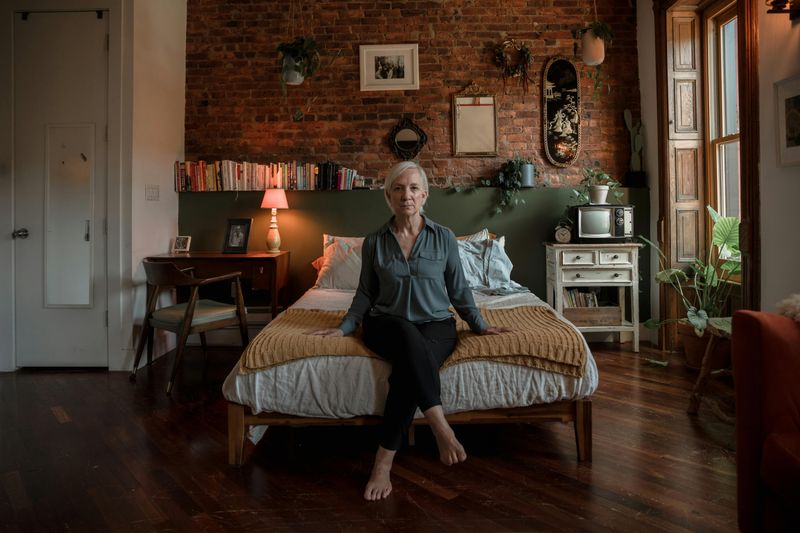
Grief can transform a once vibrant social life into a series of quiet reflections. When loss visits, it can alter the landscape of one’s emotional world, making previous social interactions seem daunting. Older adults often carry the weight of losing friends, partners, or family members, and this grief can lead to withdrawal.
The familiar warmth of companionship is replaced by memories, often shared in solitude. Holding a photograph, an older individual may find comfort in the silent company of those they miss. This withdrawal isn’t a rejection of others but a journey through their own emotional healing, making solitude a companion in itself.
6. They’ve Outgrown the Need to Impress
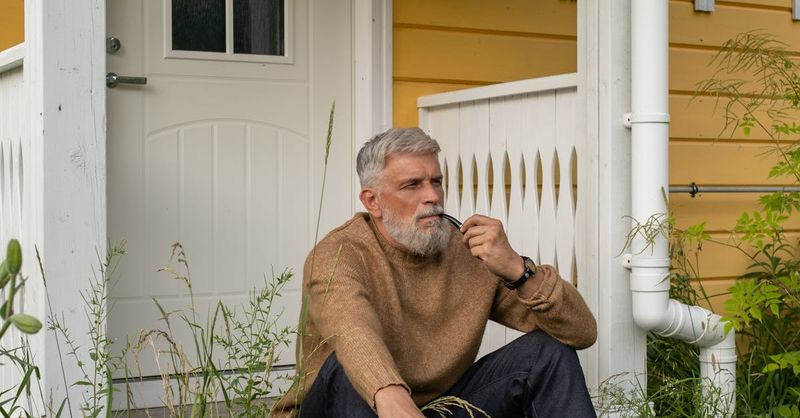
In earlier years, there might have been a desire to impress peers and society with achievements or possessions. However, as people age, this need often diminishes. Older adults have lived through the phases of proving themselves and have come to understand the fleeting nature of such pursuits.
Wearing comfortable clothes and sitting on a porch, they find joy in simplicity. The pressure to conform to societal expectations fades, replaced by a contentment in being true to oneself. This shift can lead to a withdrawal from social situations that require putting on a facade, allowing them to engage in more authentic and meaningful interactions.
7. They Prefer Quiet Over Conflict

Conflict and disagreements can be draining, particularly for those who have witnessed the toll it takes over the years. Older adults often choose peace over engagement in debates or arguments, valuing the serenity that comes with silence.
Amidst the vibrant colors of a flower garden, they find a sanctuary where the noise of conflict cannot penetrate. The tranquility of nature offers an escape, where they can appreciate the simple beauty of life without the need for contentious conversation. This preference for quiet over conflict leads to a selective engagement with others, choosing interactions that nurture rather than drain their spirit.
8. They Feel Left Behind by Rapid Cultural Changes
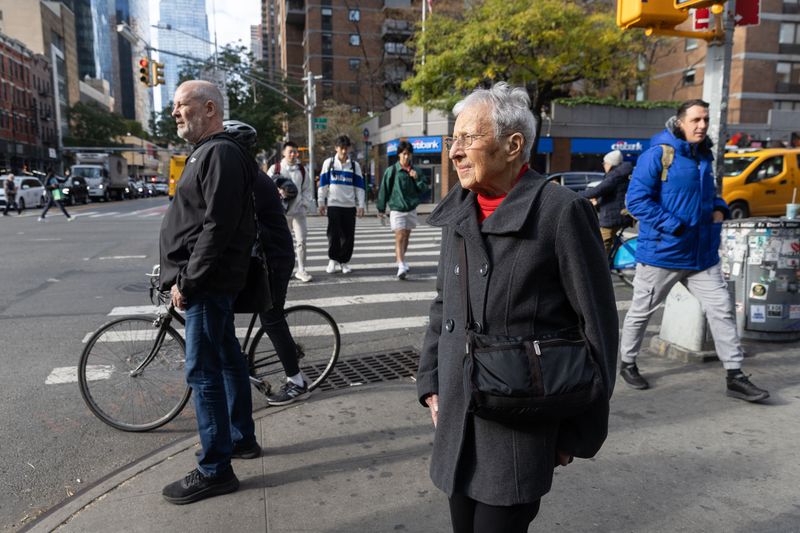
The world spins quickly, with cultural changes happening at a dizzying pace. For older adults, this whirlwind of new ideas, technologies, and societal norms can be overwhelming. They may feel their once-familiar world slipping away, replaced by something unrecognizable.
Walking through a bustling city, they move at a different pace, observing the world rushing past. This sensation of being left behind leads to a retreat into environments where they feel more comfortable and understood. Rather than trying to keep up, they find solace in the familiar and the timeless, creating a world within a world where they can belong.
9. Small Talk Feels Draining, Not Refreshing

The art of small talk, once a social staple, can become tiresome for those who have navigated life’s deeper currents. Older adults often prefer conversations that touch upon meaningful subjects rather than skimming the surface.
In a small café, an older man might find more interest in observing life through the window than engaging in trivial chatter. This preference isn’t about disliking others but about valuing the quality of interaction over quantity. As small talk becomes more about fulfilling social niceties, it loses its appeal, leading to a preference for solitude where thoughts can wander freely.
10. They’ve Lost Friends Who Once Understood Them
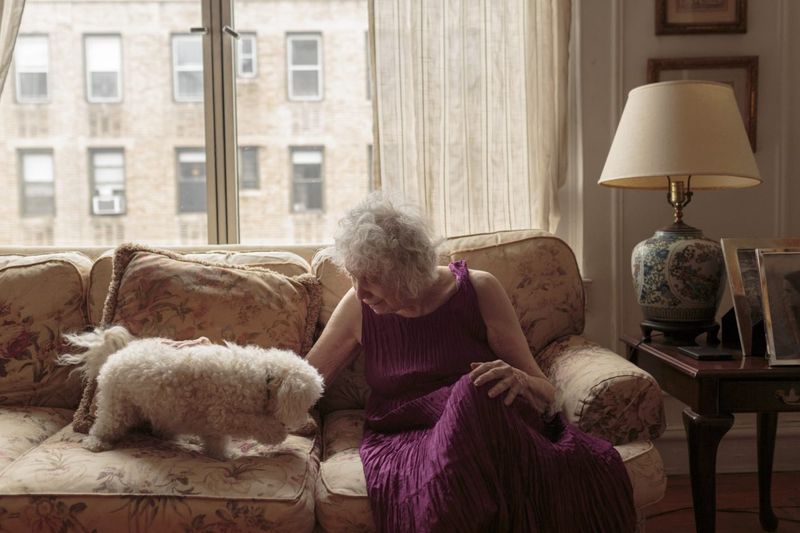
Friendships forged over decades carry a unique understanding and shared history. When these friends are lost, whether through distance or death, it leaves a void that isn’t easily filled. Older adults often find themselves without the companions who truly knew them.
In a quiet room, holding a letter, they may reflect on conversations now ended, the laughter once shared. This loss can lead to withdrawal, not from a lack of desire for connection, but from the challenge of forming new bonds that match the depth of those lost. The silence becomes an echo of past friendships, cherished and remembered.
11. They’re Managing Chronic Stress or Health Issues
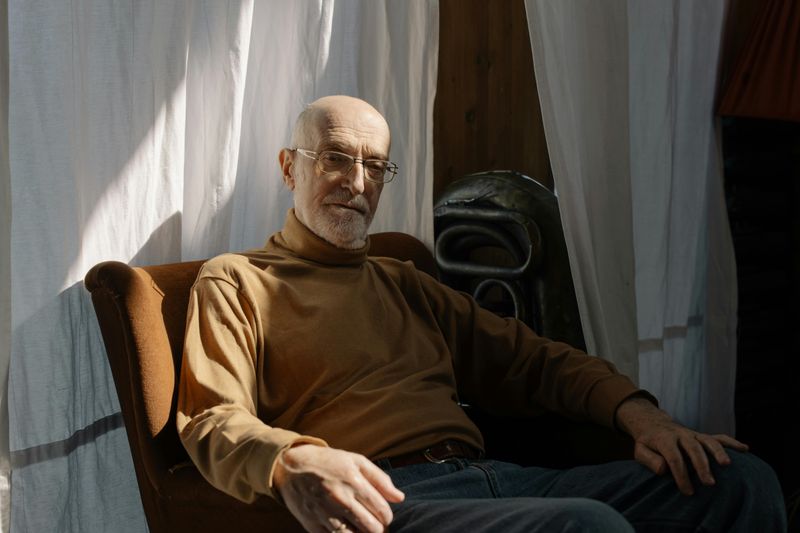
Health challenges, whether physical or mental, can consume an individual’s energy and focus. For many older adults, managing chronic stress or ongoing health issues becomes a primary concern, overshadowing social interactions.
Resting in a comfortable armchair, they may seem deep in thought, navigating the complexities of their health journey. This inward focus is not an intentional distancing from others but a necessary prioritization. Social activities that once brought joy may now feel overwhelming, leading to a natural withdrawal as they conserve their energy for healing and self-care, valuing quiet reflection over social bustle.
12. They Don’t Feel Heard—Just Listened To

There’s a difference between being listened to and truly being heard. Many older adults experience a sense of invisibility, where their words are acknowledged but not genuinely understood. This superficial engagement can be disheartening, leading them to retreat from conversations.
At a dining table, an elderly woman might reflect on the times she’s spoken, only to feel her words fade into the din of background noise. This lack of meaningful connection makes solitude more appealing, where she can engage with her thoughts without the frustration of being unheard. Silence, in this context, becomes a space of authenticity.
13. They’ve Come to Value Solitude
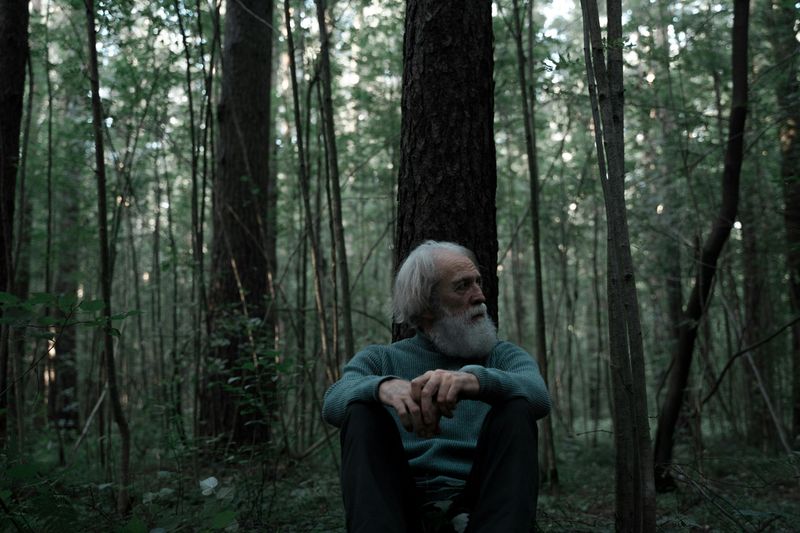
Solitude is often seen as loneliness, but for many older adults, it becomes a cherished companion. The quiet of solitude provides a sanctuary where they can explore their thoughts and memories without distraction.
Walking along a forest path, surrounded by the rustle of leaves, an older individual may find a deeper connection with nature and their inner self. This solitude is not an escape from others but a journey toward self-discovery and peace. It becomes a conscious choice to embrace one’s own company, valuing the insights and tranquility that come with being alone.
14. They Fear Burdening Others With Their Truth
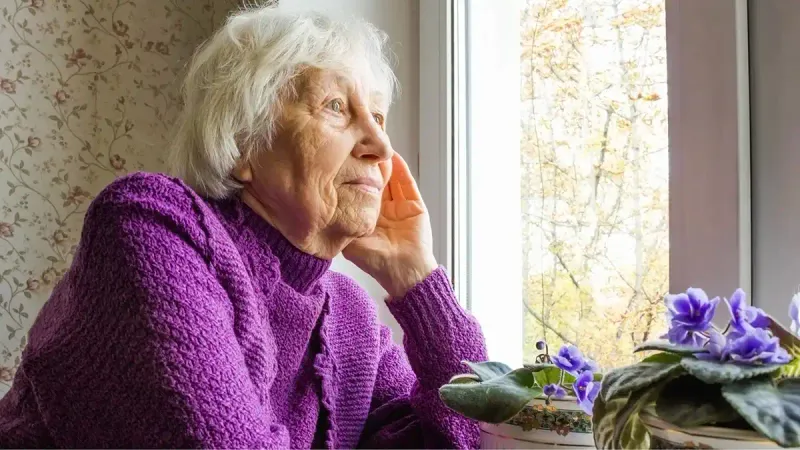
Sharing one’s truth can be a heavy burden, especially when it involves painful or complex emotions. Older adults often carry stories that are difficult to tell, fearing that revealing them might burden others or be met with misunderstanding.
Gazing out of a window, an elderly woman reflects on her experiences, choosing silence over the risk of imposing her struggles on others. This protective instinct leads to a withdrawal from deeper conversations, opting instead for the safety of internal contemplation. Silence becomes a form of kindness, both to themselves and to those around them.
15. They’re Tired of Pretending to Care About Trends

In a world obsessed with novelty and trends, many older adults find themselves uninterested in keeping up with the latest fads. The pressure to engage with contemporary culture can feel burdensome, leading them to retreat into familiar spaces that offer permanent value.
Surrounded by books in a library, an older man finds contentment in timeless knowledge. The need to pretend interest in fleeting trends fades, replaced by a focus on what truly matters to them. This shift allows them to engage more meaningfully with the world on their terms, valuing authenticity over superficiality.
16. They Don’t Want to Justify Their Opinions Anymore
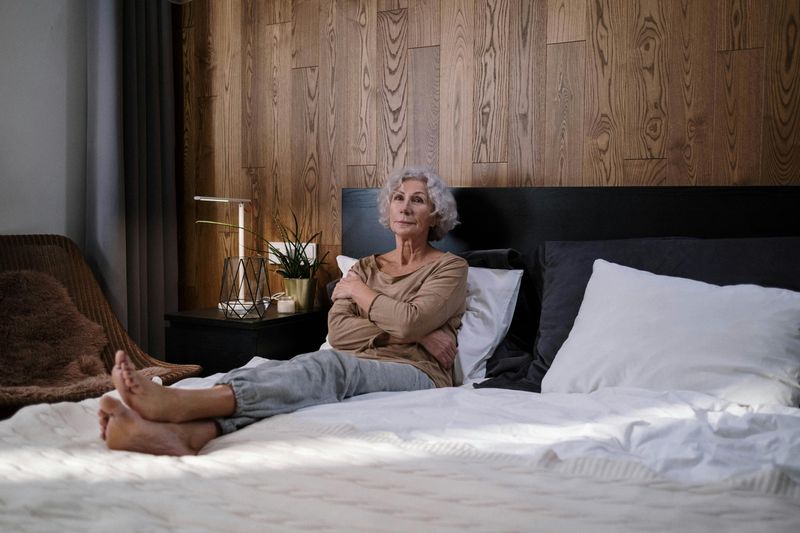
Having lived through a myriad of experiences, older adults have formed opinions that are deeply personal and well-considered. However, the energy required to constantly justify these opinions can be exhausting. As a result, many choose to keep their thoughts to themselves.
In a sunlit room, an elderly woman sits thoughtfully, reflecting on the wisdom she holds. The decision to remain silent is not a lack of conviction but a choice to conserve energy for more fulfilling pursuits. This withdrawal from debate allows for a more peaceful existence, where they can hold their beliefs without needing external validation.
17. They’ve Found Fulfillment Outside of Conversation

Fulfillment doesn’t always come from words. Many older adults discover new passions and activities that provide a sense of accomplishment and joy. These pursuits often speak louder than any conversation, offering a form of connection that transcends verbal communication.
In a sunlit studio, an older couple paints together, finding joy in shared creativity rather than dialogue. This shift in focus allows them to express themselves in new ways, finding fulfillment in the process rather than the spoken word. It becomes a journey of discovery, where silence is filled with the vibrant colors of life.
18. They Know Peace Often Comes Quietly

Peace is a gentle companion that often arrives without fanfare. Older adults, through years of life’s ebb and flow, have learned that true tranquility often comes in moments of quiet reflection.
Meditating in a tranquil garden at dawn, an elderly man finds harmony in the silence that surrounds him. This peace is not found in the clamor of conversation but in the stillness where thoughts can settle like dew on the grass. Silence becomes a cherished state, where the noise of the world fades away, leaving room for serenity to bloom.

